Definition of retrograde ejaculation
Popularly little known, retrograde ejaculation represents a disorder in which the ejaculate is introduced into the bladder rather than coming out of the penile urethra; ejaculation is defined as "retrograde" precisely because the "emission of sperm occurs in reverse, not towards the" external but towards the bladder. The "normal" ejaculation, on the other hand, is defined antegradeprecisely because the seminal fluid is expelled outwards.
Contrary to what one might think, retrograde ejaculation is not painful: the sperm, which remains trapped inside the bladder, is expelled together with the urine during urination immediately following coitus.

Causes
In all likelihood, retrograde ejaculation is due to the inability of the mouth of the bladder to close during the ejaculatory act, as occurs in normal conditions; consequently, it is not possible to prevent retrograde sperm flow.
Failure to close the mouth of the bladder is caused, in turn, by physical trauma to the bladder or by congenital or acquired neurological deficits.
Retrograde ejaculation represents a problem that affects many diabetics: diabetic neuropathy seems to be the main cause of damage to the nervous connection to the bladder.
Among the other causal factors directly implicated in retrograde ejaculation, prostate dysfunction, autonomic nervous system deficiency, surgical complications affecting the prostate and bladder neck, and TURP (acronym for endoscopic trans urethral prostatic resection, the best known intervention aimed at the treatment of prostatic hypertrophy).
Retrograde ejaculation has also been diagnosed after targeted surgery, such as endoscopic electroresection of benign prostatic adenomas, prostatic adenomyectomy, spinal and pelvic organ surgery, surgery of the retro peritoneum.
Retrograde ejaculation and drugs
It has been shown that the excessive use of some classes of drugs can potentiate the damage to the ejaculatory level, generating a "retrograde spermatic emission during orgasm": in particular, neuroleptic and antihypertensive drugs increase the probability of generating this disorder. more meticulously, a clear correlation is evident between the administration of thioridazine and risperidone (antipsychotics), and retrograde ejaculation: these drugs have antiserotonergic and antiadrenergic effects, causing a defect in the "expulsion of the" ejaculate, which is emitted inside the bladder . In any case, the interruption of the pharmacological treatment allows the reversibility of the retrograde ejaculatory condition, that is to say a clear improvement of the symptomatological picture and a return to normality. [Taken from Guidelines for the treatment of schizophrenia, by E. Sacchetti].
Retrograde ejaculation could also be found in patients undergoing pharmacological treatments with alpha-blockers, useful for the treatment of cervico-urethral obstruction; also in this case, the condition is reversible at the end of the therapy.
Dry orgasm
Mistakenly, many patients suffering from retrograde ejaculation speak of dry orgasm: it is necessary to clarify, since the two conditions are not synonymous.
- Dry orgasm: produces orgasmic sensations comparable to physiological ones, but the emission of semen during ejaculation is denied. Probably, the "dry orgasm" - or dry - is due to the lack of prostatic, testicular and vas deferens peristalsis. The sensations generated by "dry orgasm" in men are the consequence of repeated contractions of the ischium / bulb / cavernous muscles. In medical terms , dry orgasm is termed anejaculation.
- Retrograde ejaculation: unlike the dry orgasm, the emission of semen is present but the ejaculate is directed towards the bladder, resulting in subsequent leakage, along with the urine. Some patients with retrograde ejaculation also complain of psychological anorgasmia, caused by the immediate failure to see the sperm.
Diagnosis
Urinalysis is essential in the case of retrograde ejaculation, since, as already discussed, the ejaculate is emitted together with the urine, after coitus. Through urinalysis and urodynamics it is possible to verify the presence of elements of the germ line in the urine, thus diagnosing retrograde ejaculation.
In any case, in a patient suffering from azoospermia, the absence of spermatozoa in the urine does not certainly exclude retrograde ejaculation: in such situations, the search for fructose in the urine is recommended. [From Medical sexology. Treatise on psychosexology and medicine of sexuality. Of Emmanuele A. Jannini, Andrea Lenzi, Mario A. Maggi].
Among other diagnostic strategies, trans-rectal prostatic ultrasound could also represent a valid help for the investigation of any morphological-structural anomalies of the seminal vesicles.
Care
Retrograde ejaculation should not be underestimated because it could be an obvious cause of infertility; in this regard, it is necessary to consult a specialist as soon as you notice the problem.
The treatment of choice is medical-pharmacological therapy: imipramine (antidepressant drug) and pseudo-ephedrine have proved to be remarkably advantageous in resolving retrograde ejaculation: it is estimated that, following this drug therapy, the prognosis is excellent in 40% of cases.
In any case, the pharmacological substances used are not useful in all patients: another technique used is electroejaculation, in which the emission of sperm is favored by the introduction of a probe into the rectum, capable of stimulating the seminal vesicles.
When the treatments described above prove ineffective, and men with retrograde ejaculation want a child, they must use assisted fertilization: seminal fluid is collected from a urine sample (after coitus), then used for assisted fertilization. , with excellent results.
Summary
Retrograde ejaculation: in short
- Physical trauma to the bladder or neurological deficits, congenital or acquired.
- Diabetic neuropathy
- Prostate dysfunction, autonomic nervous system deficiency, surgical complications affecting the prostate and bladder neck, and TURP
- Endoscopic electroresection of benign prostatic adenomas, prostatic adenomyectomy, spinal and pelvic organ surgery, surgery of the retro peritoneum.
- Neuroleptic and antihypertensive drugs
- Thioridazine and risperidone (antipsychotics)
- Alpha-blockers (treatment of cervico-urethral obstruction)
Retrograde ejaculation: the emission of semen is present but the ejaculate is directed towards the bladder, with consequent subsequent leakage, together with the urine
Trans-rectal prostatic ultrasound: allows the investigation of any morphological-structural anomalies of the seminal vesicles
- Elective treatment: imipramine and pseudo-ephedrine (excellent prognosis in 40% of cases)
- Electroejaculation: the emission of sperm is favored by the introduction of a probe into the rectum, capable of stimulating the seminal vesicles
- Assisted fertilization

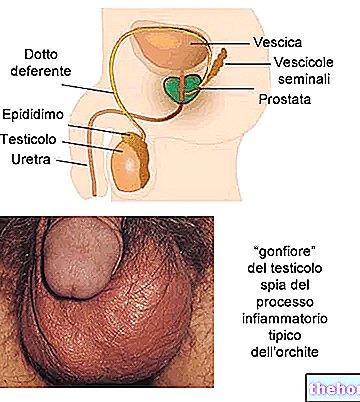
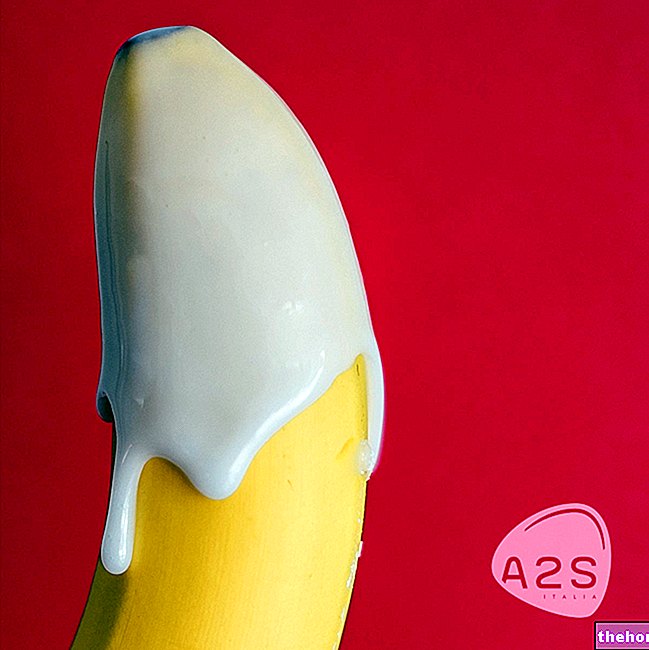
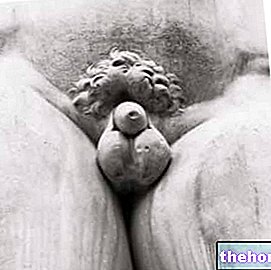

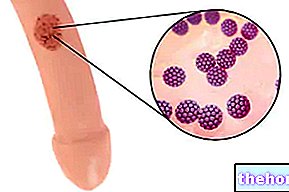
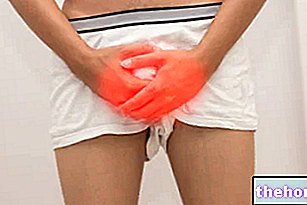









.jpg)











